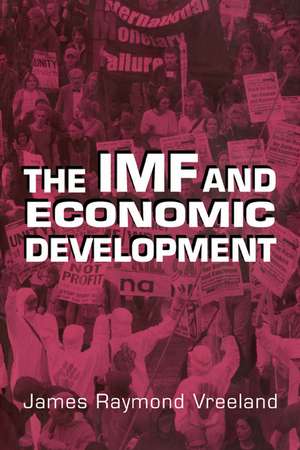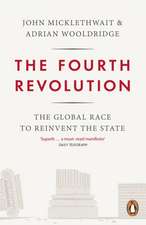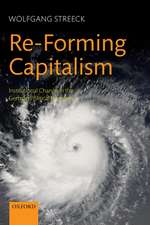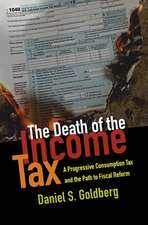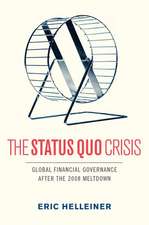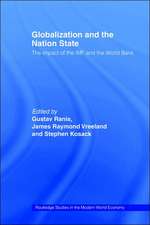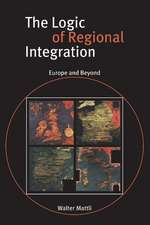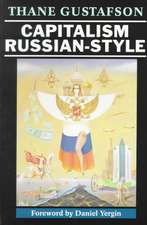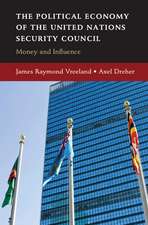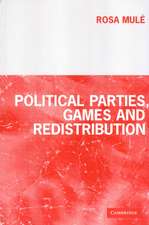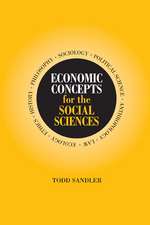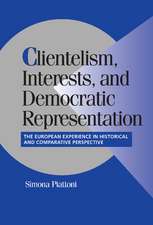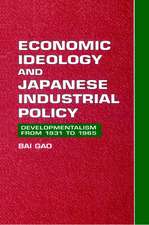The IMF and Economic Development
Autor James Raymond Vreelanden Limba Engleză Paperback – 2 mar 2003
| Toate formatele și edițiile | Preț | Express |
|---|---|---|
| Paperback (1) | 231.98 lei 6-8 săpt. | |
| Cambridge University Press – 2 mar 2003 | 231.98 lei 6-8 săpt. | |
| Hardback (1) | 570.16 lei 6-8 săpt. | |
| Cambridge University Press – 2 mar 2003 | 570.16 lei 6-8 săpt. |
Preț: 231.98 lei
Nou
Puncte Express: 348
Preț estimativ în valută:
44.39€ • 46.35$ • 36.65£
44.39€ • 46.35$ • 36.65£
Carte tipărită la comandă
Livrare economică 16-30 aprilie
Preluare comenzi: 021 569.72.76
Specificații
ISBN-13: 9780521016957
ISBN-10: 0521016959
Pagini: 216
Ilustrații: 37 b/w illus. 24 tables
Dimensiuni: 152 x 228 x 15 mm
Greutate: 0.3 kg
Ediția:New.
Editura: Cambridge University Press
Colecția Cambridge University Press
Locul publicării:New York, United States
ISBN-10: 0521016959
Pagini: 216
Ilustrații: 37 b/w illus. 24 tables
Dimensiuni: 152 x 228 x 15 mm
Greutate: 0.3 kg
Ediția:New.
Editura: Cambridge University Press
Colecția Cambridge University Press
Locul publicării:New York, United States
Cuprins
List of tables and figures; Acknowledgements; 1. Introduction; 2. Analytically significant cases; 3. An analytical approach to the politics of IMF agreements; 4. Testing the selection story; 5. The effect of IMF programs on economic growth; 6. Distributional consequences of IMF programs; 7. Conclusion; Appendices; References; Index.
Recenzii
'A must-read for anyone who wants a better understanding of global politics and the impact of the IMF in particular.' New Statesman
'Vreeland's book is worth a look as it pieces together some interesting case studies, weaves an intriguing tale of political motives, and provides a concise and readable discussion of his attempt to measure the impact of IMF programs on economic growth.' Finance & Development
'Vreeland's The IMF and Economic Development contains novel and important findings regarding the impact of IMF programmes upon participant countries … engaging …' Cambridge Review of International Affairs
'… this is a valuable contribution to the debate on development policies both in its specific findings and its welcome reminder that the challenges of development are still best viewed through a political economy lens.' Development and Change
'After applying rigorous statistical and analytical methods, Vreeland arrives at some significant, and for the IMF, sobering conclusions … Vreeland raises new questions that have important policy implications. He lays out new avenues of research and concludes with some suggestions for IMF reform.' Development Policy Review
'Vreeland's book is worth a look as it pieces together some interesting case studies, weaves an intriguing tale of political motives, and provides a concise and readable discussion of his attempt to measure the impact of IMF programs on economic growth.' Finance & Development
'Vreeland's The IMF and Economic Development contains novel and important findings regarding the impact of IMF programmes upon participant countries … engaging …' Cambridge Review of International Affairs
'… this is a valuable contribution to the debate on development policies both in its specific findings and its welcome reminder that the challenges of development are still best viewed through a political economy lens.' Development and Change
'After applying rigorous statistical and analytical methods, Vreeland arrives at some significant, and for the IMF, sobering conclusions … Vreeland raises new questions that have important policy implications. He lays out new avenues of research and concludes with some suggestions for IMF reform.' Development Policy Review
Descriere
This book argues that governments enter IMF programs for economic and political reasons.
